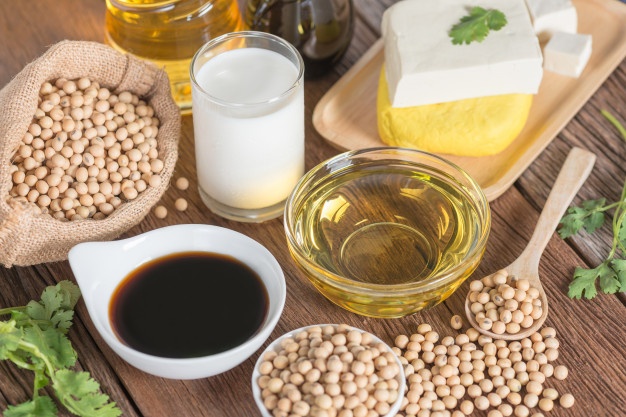The Power of Soy: A Nutrient-Rich Superfood for Kids
Soy, derived from soybeans, is a plant-based protein powerhouse packed with essential nutrients. Free from cholesterol and low in saturated fats, soy is an excellent source of fiber, iron, calcium, zinc, and vitamin B— all crucial for a child’s immune system and overall health.
Why is Soy Beneficial for Kids?
Soy is considered a superfood due to its rich nutrient profile. It provides high-quality protein, healthy fats, and vital vitamins and minerals that support healthy growth and development in children.
Popular Soy-Based Foods for Kids
Soy can be processed into various food products, including:
✅ Soy milk
✅ Soy flour & soy powder
✅ Tofu & tempeh
✅ Miso & soy sauce
✅ Soy yogurt & soy ice cream
✅ Soy cheese & soy nut butter
✅ Meat alternatives & soy chunks
These soy-based foods can easily be incorporated into a child’s daily diet for optimal nutrition.
Essential Nutrients in Soy for Kids’ Growth
Children require a balanced diet to support their physical and cognitive development. Soy and soy-based products contribute to key nutrients, including:
✔ Protein: Essential for building and repairing body cells. Soy is a complete protein source.
✔ Carbohydrates: Provides energy for daily activities. Some cereals also contain soy for added nutrition.
✔ Healthy Fats: Necessary for brain development and hormone production. Soy cooking oil, tofu, and soy cheese are rich in good fats.
✔ Calcium: Supports strong bones and teeth. Tofu is an excellent source of calcium.
✔ Iron: Helps transport oxygen throughout the body. Soya beans and soy-derived foods are rich in iron.
✔ Folate (Vitamin B9): Supports cell growth and development. Soy milk and tempeh are great sources.
✔ Fiber: Aids digestion and reduces long-term health risks. Edamame and black soybeans are fiber-rich options.
✔ Vitamin A: Boosts immunity and prevents infections. Tofu is a great source of Vitamin A.
✔ Vitamin C: Strengthens blood vessels and enhances immunity. Soybeans contain a good amount of Vitamin C.
Soy Allergy & Safety Precautions
Although rare, some children may develop soy allergies. If a child experiences allergic reactions such as skin rashes, digestive discomfort, or breathing issues after consuming soy, parents should consult a doctor. Many soy allergies fade by the age of 10-12, but it’s always best to monitor reactions carefully.
Does Soy Affect Hormones in Kids?
A common concern among parents is the presence of isoflavones (plant-based estrogens) in soy. Some believe they may have long-term hormonal effects, but scientific research has found no conclusive evidence to support these claims. In moderation, soy is considered safe and beneficial for kids.
How Much Soy Should Kids Consume?
For optimal health benefits, parents can introduce one serving of soy or soy-based foods per day. However, excessive consumption of any food can have adverse effects, so moderation is key.
Health Benefits of Soy for Kids
✔ Reduces bad LDL cholesterol
✔ Supports a healthy heart
✔ Promotes brain development
✔ Provides essential amino acids & omega-3 fatty acids
✔ May lower the risk of breast cancer later in life
Final Thoughts
Soy is a nutrient-rich, plant-based superfood that plays a crucial role in a child’s balanced diet. From boosting immunity to strengthening bones and heart health, soy offers multiple benefits when consumed in moderation. Always consult a pediatrician before introducing soy into a child’s diet, especially if allergies are a concern.
For more expert parenting tips and nutrition advice, visit DrDad.in! Visit related post.
References:
🔗 KidsHealth.org
🔗 OneGreenPlanet.org
Would you like me to include more specific keywords for SEO optimization?


